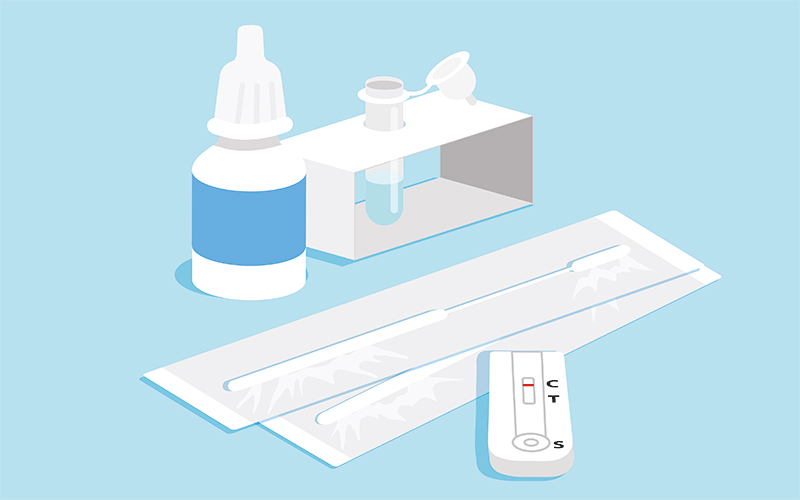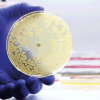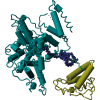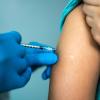This month we ask “What is our involvement as biomedical scientists when it comes to direct-to-consumer testing?”

Michael Osborn

President
Royal College of Pathologists
Direct-to-consumer (DTC) tests are available for the public to purchase and do at home. In general, they involve the patient taking a swab or a pinprick-type blood sample, putting it in a receptacle and reading the result at home or, more often, sending it off to a lab for tests to be conducted. The result is then provided to the patient.
Biomedical science staff are key to most of the steps. They will be involved in developing the test and helping produce and package it in a form suitable for home testing. Once the sample has been returned to the lab, biomedical science staff will be responsible for running the test and obtaining the results. They may also be involved in interpretation of the results. In addition, biomedical science staff, often at a more senior level, will have oversight of the whole testing pathway and process, have roles in ensuring internal and external quality control of the test and in helping to ensure the relevant governance relating to the test is in place. The only part of the test they will not be involved in is the actual acquisition of the sample, which biomedical science staff tend not to be involved in anyway.
So, in summary, in my opinion, biomedical science staff will be as involved in DTC testing as they are now, although those involved are likely to be working for private companies rather than the NHS given that most of these tests are purchased. Laboratory tests are dependent on skilled laboratory staff, and that won’t change with DTC testing.
Debra Padgett

President
Institute of Biomedical Science
In this post-COVID world where the public are more familiar with self-testing, and due to the increased waiting list and backlog pressures, many suppliers have seized the opportunity to develop DTC offerings.
DTC testing gives consumers more control over their health and makes it easier for people to access medical information without having to go through a healthcare provider to enable them to make more informed decisions about their health and wellbeing.
Whilst this could be considered a benefit, it is important to note that DTC testing has many risks and limitations.
As the professional body for biomedical science, the IBMS has a responsibility to promote best practices and ethical standards in the field of pathology testing. My key concerns (although not exhaustive) would be:
Regulation and quality control – there is a lack of regulatory oversight to ensure that the tests are accurate and reliable.
Individuals may not have the necessary knowledge to interpret their results accurately or understand the implications of the results due to lack of clinical guidance and interpretation.
Issues around interoperability to integrate results into patient records.
Overall, the IBMS has an important role in highlighting the issues around ensuring DTC testing is safe, accurate and beneficial to consumers, and in advocating for the professional and ethical standards of the biomedical science profession.
Dr Bernard

L Croal President
The Association for Clinical Biochemistry and Laboratory Medicine
In recent years we have seen significant uptake in the availability and use of DTC testing. This is as a result of advances in technology making a much wider range of tests more easily available and accessible, the increasing private-sector appetite for such testing, and increasing demand from the public, especially as the NHS struggles at times to deliver even basic care. Biomedical scientists working both within the NHS and private sector have an important role in assessing, advising and regulating such tests in the future.
Biomedical scientists continue to have an increasing role in developing and providing guidance on the appropriate use of tests to both healthcare professionals and patients. This may be at local level but also as part of the multidisciplinary teams developing regional and national guidance.
While little regulation currently exists, this is likely to change soon, which will present much opportunity for biomedical scientists to assist in evaluation, quality assessment and appropriate implementation needs.
DTC testing is here to stay and likely to increase in the coming years. The biomedical science community needs to embrace this and get involved directly to ensure such testing is appropriate, of a high quality and regulated for use. Their knowledge base and skills will be ideal to deliver this.
Image credit | Shutterstock




